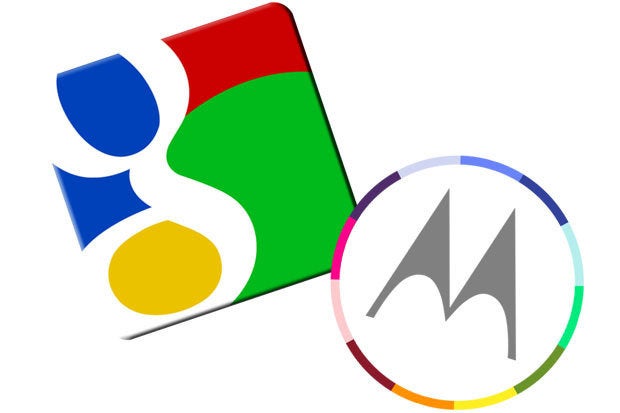Lenovo and Motorola -- who woulda thunk?
As we all try to make sense of Google's shocking sale -- and what it might mean for the future of Motorola products -- it's worth considering what exactly Google got out of its 20-month-long Moto ownership.
At a glance, it might look like Google took a big hit financially by selling the company. I'll leave the number-crunching to the accountants, but let's consider the broader benefits Google actually gained from its Moto-toting time:
1. Patents

This is the obvious one, right? Back when Google first announced its plans to buy Motorola, much of the focus was on patents -- Google's desire to "increase competition by strengthening Google's patent portfolio" to "better protect Android from anti-competitive threats," as Larry Page put it at the time.
Well, that hasn't changed a bit. Google will "maintain ownership of the vast majority of the Motorola Mobility patent portfolio," according to the company's announcement, and will license those patents to Lenovo for continued use. And remember, Google also just signed an agreement to share its existing and future patents with Samsung, one of Android's biggest targets of legal action, a few days ago.
I'd say Google's accomplishing exactly what it set out to in this regard.
2. Leverage
This next one works on a couple different levels. First are those aforementioned patents: By having Motorola's patent portfolio in its pocket, Google was able to negotiate with Samsung to gain the use of its patents. Without the Moto property, Google would have presumably been in a far weaker position to bargain.

Beyond that -- and this second part comes with a big ol' asterisk of being based on unofficial information -- are recent reports of Samsung agreeing to "dial back" its heavy-handed modifications to Android and "bring [its] view of Android in line with Google’s own."
The reports originate from Recode, a publication run by the traditionally reliable team behind the now-defunct All Things D website. In its story, Recode said it was "unclear what concessions Google may have made" in order to secure the sweeping arrangement with Samsung.
Samsung is by far the biggest player in Google's Android universe. The story of its alleged cooperation with Google broke on the same day as the Motorola sale. With the caveat that the information here is from a generally reliable but not official source, it's hard not to suspect some sort of connection.
3. Control
Google bought Motorola at a time when the phone-maker was struggling. By doing so -- even though it didn't it end up keeping it in the long run -- it effectively took control of the company's destiny.
Think about it: Google reinvented Motorola. It gave it a new kind of culture and customer-centric focus that revolves around user experience. And then it decided which company would take the reins and control what could become a significant player in its ecosystem of Android manufacturers.
If Google hadn't gotten involved, there's no telling what might have happened to Motorola -- how long it would have survived, what company might have acquired it, or what direction (or even on what platform) it might have gone. Google's short-lived ownership allowed it to strategically shape and direct Motorola's future.
4. Balance
As I mused earlier today, Motorola may have been nailing it from a consumer perspective, but its handsets didn't have the marketing and distribution arrangements to take off in any large-scale way. Regardless of the quality of the products, the company likely would have struggled for a long time to achieve a meaningful amount of mobile market share on its own.

Combined with Lenovo, though, Motorola has a fighting chance to make a dent in the Android ecosystem and provide some much-needed competition. Already, the joint company is estimated to become the world's third largest smartphone vendor, behind only Samsung and Apple. And Lenovo has made it clear that "winning market share is the goal," saying it now has what it needs "to challenge others in this market."
With Lenovo's strong presence outside of the U.S. and Motorola's brand recognition within America, Lenovo-Moto could become a viable global competitor in ways that Moto by itself might not have been able to. For Google -- which, remember, is interested first and foremost in getting more people to spend more time using Android and thus its various online services -- that'd be a major win.
5. Innovation for the greater Android ecosystem
During its time with Motorola, Google introduced some impressive new concepts -- like Touchless Control, which the company has claimed meaningfully increases user engagement with Google search. That feature and other Motorola-made innovations couldn't have happened without access to a hardware manufacturer. They ultimately benefit Google (see the previous "getting people to spend more time using online services" note), and they'll continue to be in users' hands in the future.
On a broader level, Google is reportedly keeping Motorola's Advanced Technology group and incorporating it into its own core Android team. The Advanced Technology group is the crew behind Project Ara -- modular phones that you can easily upgrade piece by piece -- as well as crazier concepts like swallowable sensors and skin-embedded passwords.
That presumably means that those technologies will eventually be connected to Android itself at some point -- which significantly increases their potential reach within the mobile market, thus marking another win for Google.

All said and told, Google's decision to sell Motorola is certainly shocking -- and a bit sad -- but it's a harsh reminder that at the end of the day, all ideals aside, this is still just business. And in the end, Google sure seemed to get a lot of the things that it wanted.
Now let's hope the payoff is as great for us as consumers as it is for Google and Lenovo as businesses.
SEE ALSO: Please, Lenovo: Don't screw up what Motorola started






